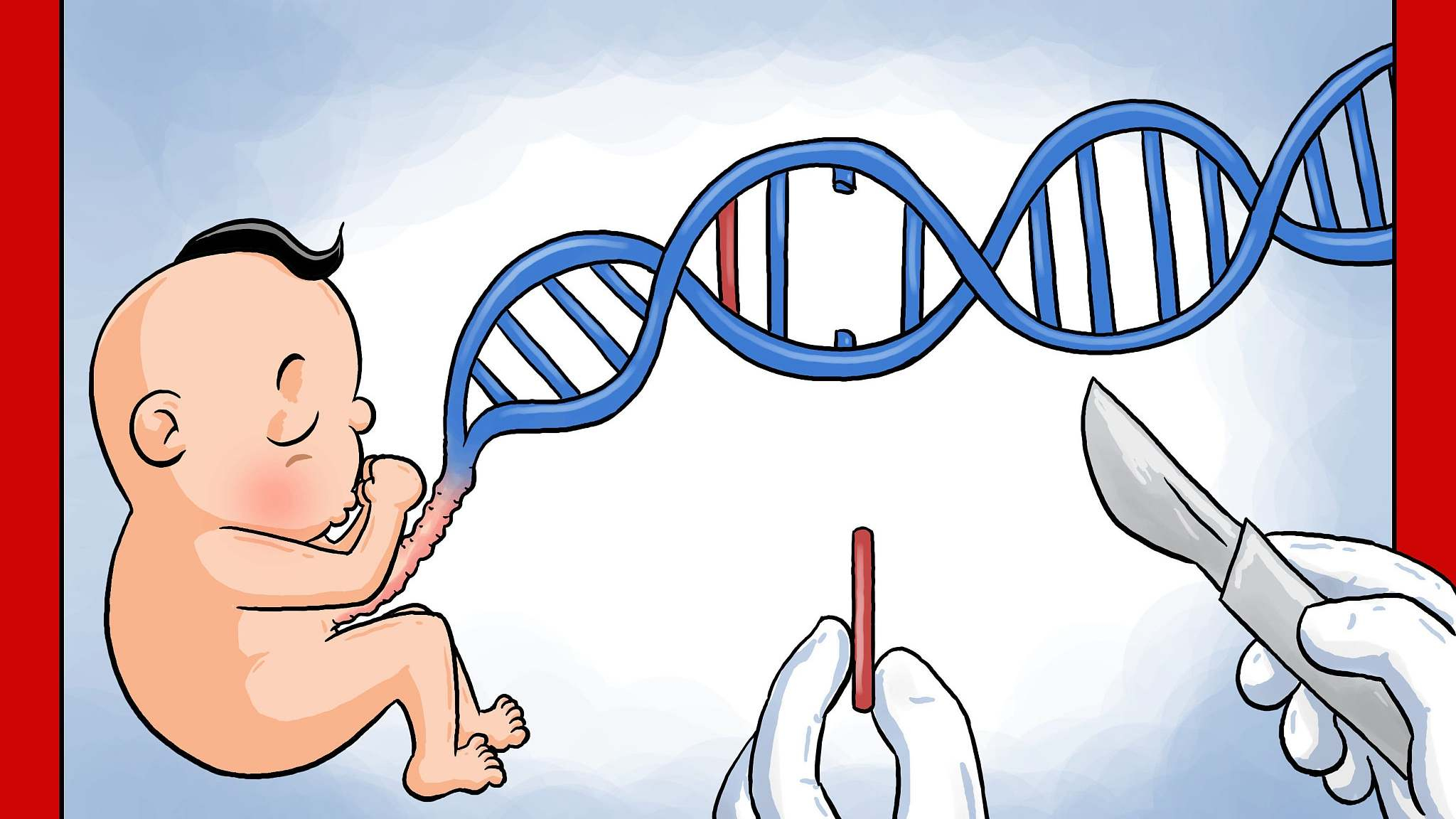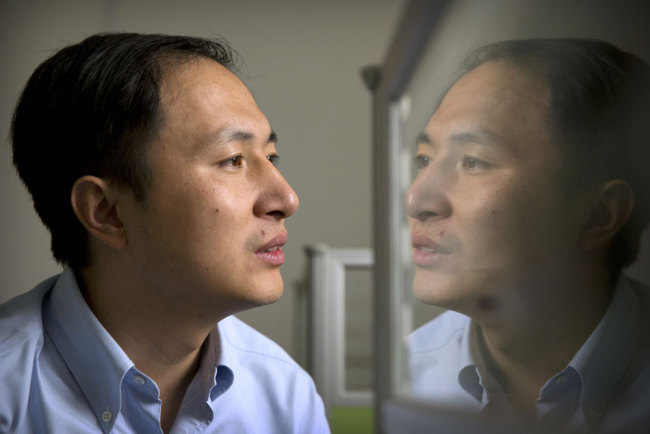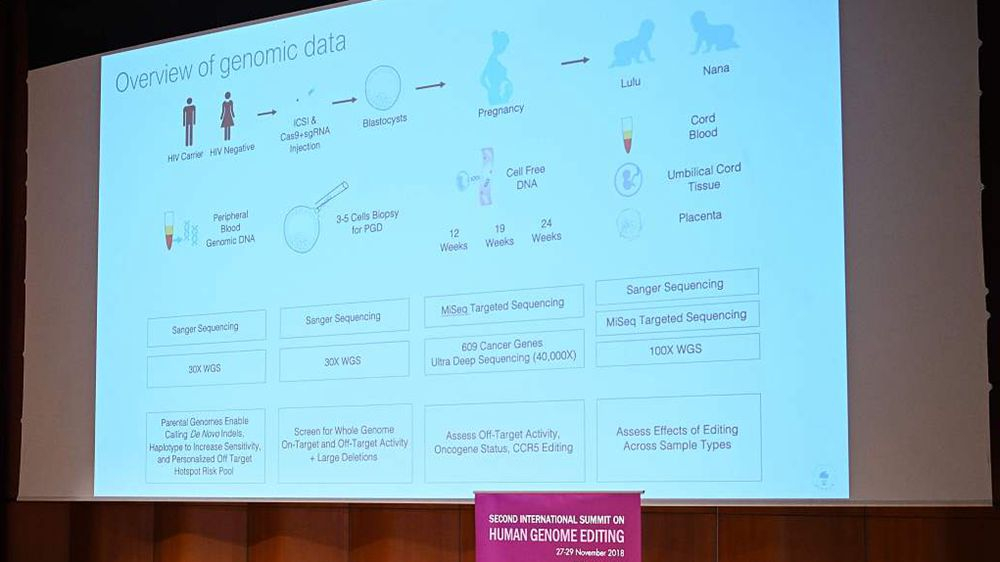
Domestic
13:15, 24-Jan-2019
Chinese experts call for law to keep up with genetic research
Yao Yao

Chinese experts are calling for establishing ethical rules and passing legislation on biomedical research in China amid ongoing investigation into scientist He Jiankui, who claimed that he had created the world's first gene-edited babies.
China currently has only one guideline on human embryonic stem cell research ethics.
Meanwhile, the second woman carrying a gene-edited baby from He's experiment has been found.
The investigation team from south China's Guangdong Province announced on Monday that He, who sparked global outrage after announcing the success of his experiment on editing the genes of twins at an international conference last November, and his collaborators are likely to face criminal charges, because they have violated state regulations, one of which bans human embryo gene-editing activity with the purpose of reproduction.
The investigation results have temporarily put an end to worries about how the scientist will be dealt with and whether his experiment was legal.
Dr. He, who was at the time an assistant professor of biophysics at Southern University of Science and Technology in south China's Shenzhen City, deliberately sought to evade supervision by raising funds on his own, used unsafe and ineffective methods, and forged ethical review materials, according to the investigation.
He's case has highlighted the necessity of informed consent. In China, any medical experiment on human subjects has to inform the subjects precisely and adequately, and then obtain consent from the latter, said Li Runsheng, an expert at health law in Beijing University of Chinese Medicine.

He Jiankui is reflected in a glass panel as he works at a computer at a laboratory in Shenzhen, south China's Guangdong Province, October 10, 2018. /AP Photo
He Jiankui is reflected in a glass panel as he works at a computer at a laboratory in Shenzhen, south China's Guangdong Province, October 10, 2018. /AP Photo
However, this protocol was not followed in this controversial case. One HIV-infected man, whom Dr. He's team tried to recruit, told news magazine Sanlian Life Weekly that he was not told of the ethical concerns about editing the genes of human embryos, let alone of other ways for preventing HIV infection that do not have the such high risks.
"If the subjects are not fully informed, He's team will be suspected of cheating and violating the subjects' rights to be informed," Li said.
The forged ethical review materials showed He carried out the experiment "in pursuit of personal fame and fortune."
"Nowadays, gene technology belongs to restricted technologies and is subject to certain regulations and rules in China. The technology can only be applied after the local health administrative department is informed of the experiment and approve the experiment after reviewing the materials. The forged ethical review materials obviously violated relevant rules and regulations," said Li.
At present, He's contract with the University was rescinded, and he can no longer participate in any teaching or research activities there.
It's still uncertain what kind of penalties he and his team organized by himself might face later. However, many experts in China have pointed out that it's urgent to strengthen regulation on genetic research, especially on gene editing.

A slide on a screen shows He Jiankui's experiment results at the Second International Summit on Human Genome Editing held in Hong Kong, November 28, 2018. /VCG Photo
A slide on a screen shows He Jiankui's experiment results at the Second International Summit on Human Genome Editing held in Hong Kong, November 28, 2018. /VCG Photo
"Gene-editing technology is very powerful. However, what makes the technology more terrifying is that people who have received some relevant training can do experiments of this kind at a laboratory. Or in other words, the easily-accessible technology lets anyone owning this technology do the experiment at a cost of less than 100,000 yuan (14,700 U.S. dollars)," Shao Feng, from the Chinese Academy of Sciences and deputy director of the National Institute of Biological Sciences, was quoted by Beijing Youth Daily as saying.
Genetic research has seen rapid development in China in recent years. For example, there are reports of gene-edited monkeys and pigs. But birth of gene-edited babies is a big news in China as well as in other countries.
To avoid a similar scenario, experts have called on the Chinese government to enact tough laws on gene-editing. They think that the current 2003 regulations governing embryo experiments, which He was reported to have violated, are outdated.
Saying yes to the experts' appeal of introducing legislation on biomedical research, Li said it's best to formulate ethical rules especially targeting gene technology, and the rules must be obeyed by every medical organization and medical practitioner. After the rules are widely accepted, it's time to roll out updated regulations for biomedical research.
From Li's viewpoint, it's unrealistic to formulate a law on gene research. "Gene technology is so advanced that formulating a law can hinder the innovative development of the technology, due to the conservativeness and hysteresis of any law," Li said.

SITEMAP
Copyright © 2018 CGTN. Beijing ICP prepared NO.16065310-3
Copyright © 2018 CGTN. Beijing ICP prepared NO.16065310-3